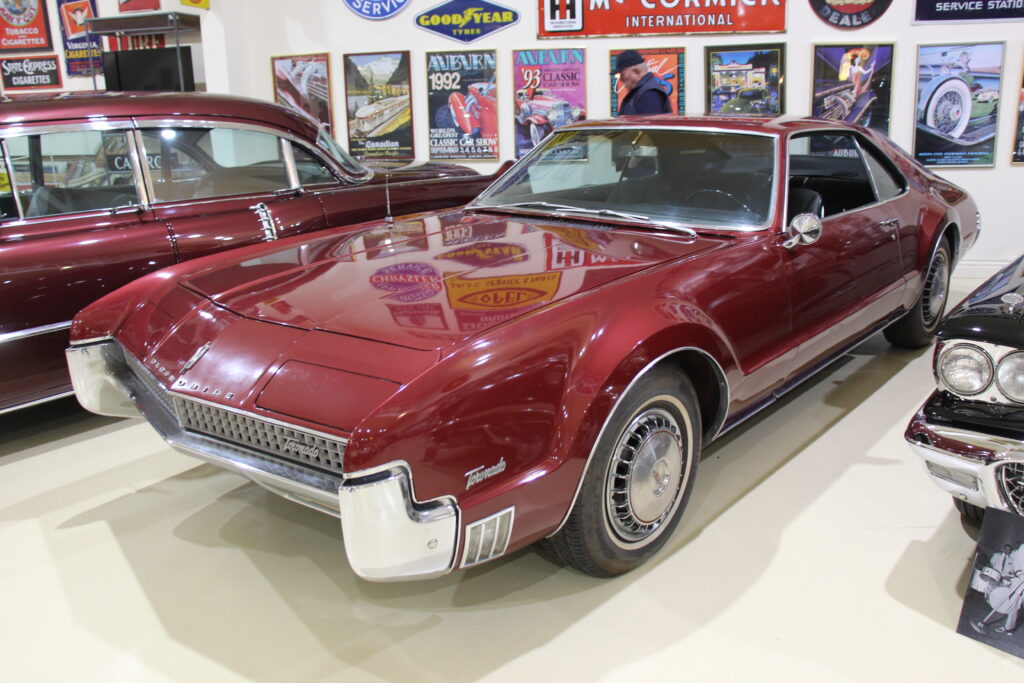
Buying a new or used car should be an exciting journey, a path to new adventures. Yet, stepping into a dealership can often fill us with a unique dread, a sense of an unequal battle where odds seem stacked against us. But here’s your power: once you recognize common tactics, you can confidently counter them and save significant money, just as I did, walking out having saved thousands.
Dealers often use a “playbook” to confuse and pressure you into paying far more than sticker price. Imagine a car advertised at $39,000, becoming $52,000 out-the-door. This article is your guide, empowering you with practical advice to navigate these traps. We aim to make your next car purchase transparent, smooth, and satisfying. Let’s explore the initial tactics you’ll likely encounter.

1. **The Pricing Sheet Shuffle & Bogus Fees**:The “pricing sheet shuffle” is a common first hurdle. A salesperson presents a “four-square worksheet” that looks reasonable, but it hides arbitrary “market adjustment fees” or “dealer fees,” dramatically inflating the cost. Even charges for “electronic filing” are often standard business practice disguised as an extra expense, inflating the actual price.
Dealerships also push “add-ons” as mandatory or pre-installed, like “nitrogen-filled tires” (often free), “ceramic paint protection,” or “fabric protection.” These are priced excessively compared to independent shops or DIY solutions. They might also charge for “vehicle inspections” on certified cars or “reconditioning fees” for basic cleaning, turning standard costs into additional profit.
Be firm about unjustified fees. Demand discounts if features are claimed installed, or ask for a car without unwanted add-ons. Your final term sheet should only list the vehicle price, reasonable documentation, registration fees, and taxes. Any other add-ons should be explicitly requested; otherwise, it’s a red flag, and be ready to walk away.

2. **The Monthly Payment Trap & Downplaying Total Price**:The “monthly payment trap” shifts focus from the car’s total price to your ideal monthly budget, cleverly hiding the true cost. Dealers use this to manipulate the deal, extending loans from 60 to 72 months. This lowers monthly payments, but adds thousands in interest over the loan’s life, making the car seem affordable while costing you more overall.
They might also increase your down payment, which reduces monthly burden but keeps you paying the same inflated total price. This tactic “downplays the total price,” luring you into an expensive car. Longer terms from lower payments accumulate substantial interest and risk an “upside down car loan.”
Resist discussing monthly payments until a firm “out-the-door” total price is agreed. Insist your focus is on the total vehicle price. Under the CARS Rule, dealers must disclose how monthly payment figures are derived, so demand that breakdown. Never answer “How much can you pay each month?” State, “I can afford to pay X dollars for the car,” to maintain control.
Read more about: Heads Up, Car Buyers! 15 Sneaky Dealership Tricks You Can’t Afford to Miss

3. **The Bait and Switch & Fake Online Listings**:The “Bait and Switch,” now illegal under the FTC’s CARS Rule, lures you with an enticing online ad at a great price. Upon arrival, the car is “sold” or “unavailable.” The salesperson then redirects you to a “similar model” at a significantly higher price, exploiting your presence and desire not to leave empty-handed.
This tactic often combines with “fake online listings” or “false advertising.” Dealerships post attractive but nonexistent cars or misrepresent features/trims to generate foot traffic for high-pressure sales on different vehicles. They may also refuse to honor advertised online prices, disregarding their own deals.
If the promised deal isn’t real, walk away. Confirm vehicle availability and price via phone/email before visiting. Always save a copy of the ad as crucial evidence. Verify all advertised features on the actual vehicle before any agreement.

4. **The Good Cop, Bad Cop Rotation**:The “good cop, bad cop rotation” aims to wear you down during negotiations. The salesperson takes repeated, lengthy trips to the back office, returning to lament that the “manager won’t budge” but “promising to keep trying for you.” They position themselves as your sympathetic advocate against the “big, bad boss,” a choreographed act to exhaust you.
This performance is designed to maximize profit while making you feel like you’ve won a tough battle. They might even swap in a new salesperson who feigns shock at previous treatment, promising to “fix everything”—same script, different face, all to disarm and secure higher profits.
The salesperson is not your friend. Stay focused on your target price. Set a firm time limit for negotiations upfront. If they disappear for over 10 minutes, stand up and head towards the door, stating you won’t wait for games. This firm stance often speeds things up, as they realize you’re serious.
Read more about: The Perpetual Motion Machine: Why Hollywood Can’t Quit Its ‘It Boy’ Obsession and the Seven Faces Dominating Your Screens

5. **The Credit Pull Mess & Manipulating Credit Reports**:During finance, beware the “credit pull mess.” The manager asks for your SSN, then runs your credit through numerous lenders. Each “hard inquiry” can ding your score, and multiple pulls can seriously damage it, hindering future loan approvals elsewhere.
Dealerships also “manipulate credit reports” by lying about your score. They might falsely claim you don’t qualify for promotional rates, then offer a higher APR, pocketing the difference. This “undervaluing your credit score” prevents you from accessing competitive rates, costing you hundreds or thousands.
Proactive preparation is vital. Get preapproved for an auto loan from your bank before visiting, giving you leverage. Consider freezing your credit report with all three bureaus to prevent unauthorized pulls. Don’t share your SSN until the car’s price is agreed. Temporarily unlock files for one pull, then immediately relock them.
Read more about: Beware! The Escalating Digital Scams Ravaging the Auto Industry and How We’re Fighting Back

6. **The Dream Car Distraction**:The “dream car distraction” steers conversations from price to enticing features like premium sound systems or luxury seats. They spend time demonstrating and describing every comfort, deliberately triggering emotional attachment and allowing you to picture yourself driving the car, creating a powerful emotional connection.
Once emotionally invested, the price recedes, becoming secondary. The salesperson knows an emotional buyer is more likely to overlook an inflated price, using features as a distraction from financial details to secure higher profit margins.
Separate emotion from transaction. Test drive and explore features *before* negotiating price. When discussing numbers, keep the conversation price-centric. If redirected, assert: “I already know I want the car. That’s not the question. The question is the price,” ensuring emotions don’t cloud judgment.
Read more about: Behind the Grease and Grime: 12 Cars That Make Mechanics Secretly Cheer (Or Curse) When You Roll In

7. **The Finance Office Switcheroo & Rushing Through Paperwork**:After agreeing on a price, the “finance office switcheroo” happens, often with “rushing through paperwork.” The official contract may reveal a higher monthly payment, new “loan origination fee,” or inflated interest rate. The complex format and tiny print make discrepancies hard to spot.
When questioned, dealers claim the term sheet was an “estimate” and this is the “real” contract, pressuring you to sign quickly. This rush prevents thorough reading, leading you to overlook critical terms or hidden fees that alter the deal in their favor.
Be vigilant. Insist on a copy or picture of the term sheet. In the finance office, take your time. Review every line item: price, down payment, trade-in, interest rate, loan term, monthly payment. Demand clear explanations for changes. The term sheet isn’t binding until the final contract is signed; you can always walk away.
Navigating the Hidden Hurdles: Seven More Dealer Deceptions in Financing, Vehicle Condition, and Finalizing the Sale
While we’ve explored some of the initial tactics dealers might employ, the road to a fair deal can still present unexpected detours. Dealerships, in their quest to maximize profits, sometimes cross ethical lines, particularly when it comes to the vehicle’s true condition, the intricacies of financing, and even the final stages of a sale. These hidden hurdles can be far more insidious, leaving you with a problematic car or an expensive loan you didn’t anticipate.
Being forewarned is truly forearmed in these situations. Understanding these additional deceptions will equip you with the knowledge to scrutinize every detail and stand firm, ensuring your next car purchase is transparent, ethical, and, most importantly, on your terms. Let’s delve into seven more crucial tactics that require your sharpest attention, empowering you to avoid becoming another dealership’s unwitting victim.

8. **Odometer Fraud**One of the oldest and most dishonest tricks in the book is ‘Odometer Fraud.’ This deceptive practice involves deliberately rolling back the odometer to falsely represent a lower mileage than the vehicle has actually traveled. Imagine buying what you believe is a gently used car, only to discover it has far more wear and tear than indicated. This dishonesty doesn’t just mislead buyers about a car’s condition; it also artificially inflates its perceived value, costing you money and peace of mind.
Dealers often prey on the buyer’s natural inclination to seek lower mileage vehicles, as these typically command higher prices. They know that cars with higher mileage usually come with lower price tags, making the temptation to manipulate this figure quite strong for unscrupulous sellers. This scam is especially dangerous because vehicles with more actual miles often require more maintenance or even significant repairs like an engine replacement much sooner than a buyer would expect for a low-mileage car. These unexpected expenses can quickly turn a ‘good deal’ into a financial nightmare.
To fight back, the first and most crucial step is to request a comprehensive vehicle history report. Services that provide these reports can reveal discrepancies in mileage readings over time. Additionally, always, and we mean *always*, have an independent mechanic inspect the car before you finalize the purchase. This small investment of a couple hundred dollars is 100% worth it, as a professional inspection can uncover mechanical issues linked to actual mileage and verify the odometer’s accuracy. If you’re skeptical about a low-mileage claim, like a 2016 model with only 20,000 miles, check the tires; if they’re not the original set, it could be a significant red flag that the vehicle has traveled more miles than stated. Always compare the mileage on the car’s title as well to the odometer reading.
Read more about: 15 Crucial Reasons Why You Should Think Twice Before Buying a Used Car from a Dealership

9. **Undisclosed Salvage Titles**Another prevalent and deeply concerning tactic we frequently encounter is the sale of vehicles with ‘Undisclosed Salvage Titles.’ This trick involves a dealer selling a vehicle that has been previously totaled – perhaps due to an accident, flood, or other severe damage – without ever disclosing its salvage status to the buyer. These cars are often acquired by dealerships for a very low price due allowing them to make a substantial profit when they sell them, relying on buyers’ lack of information to pass off damaged goods as fully functional vehicles. While California law often requires disclosure for certain conditions like ‘lemon law buybacks,’ some dealers still attempt to bypass this.
Vehicles with a salvage title carry inherent risks. Their structural integrity might be compromised, or they could have lingering mechanical or electrical issues that are difficult to detect during a quick inspection. Driving such a vehicle can be unsafe, and future repairs might be extensive and costly. Furthermore, insuring a car with a salvage title can be more challenging and expensive, and its resale value will be significantly lower, even if it has been repaired.
To protect yourself, a thorough check of the vehicle’s history report is absolutely essential; it will reveal the car’s true status, including any past salvage declarations. If you discover this deception after the purchase, do not hesitate to contact a dealership fraud attorney immediately for a free consultation. Diligent research and a comprehensive vehicle history check can unveil a car’s past, safeguarding you from hidden dangers and ensuring you don’t inherit someone else’s problem. You deserve to know the full story of the car you’re buying.

10. **Yo-Yo Financing**’Yo-Yo Financing’ is a particularly frustrating and financially risky tactic that dealerships sometimes employ. The trick begins when a dealership finalizes a sale with an agreed-upon financing plan, allowing you to drive off the lot with your new vehicle. However, days or even weeks later, they call you back, claiming that the initial financing fell through or that the terms need to be changed to more expensive ones. This strategy exploits the buyer’s emotional investment and the inconvenience of returning the car, pressuring them into unfavorable terms that they would never have agreed to initially.
This tactic leaves buyers in a precarious position. You’ve already taken possession of the car, possibly sold your old one, and emotionally committed to your new ride. The dealer banks on you wanting to avoid the hassle of unwinding the deal, making you more susceptible to accepting a higher interest rate or a longer loan term, both of which significantly increase the total cost of the vehicle. It’s a classic bait-and-switch where the “bait” is the initial, attractive financing, and the “switch” is the more costly plan.
The most effective countermeasure against yo-yo financing is to secure your financing from a reputable bank or credit union *before* you even set foot in the dealership. Arriving with a pre-approved auto loan gives you immense leverage, as you already have a solid financing offer in hand. This removes the dealership’s ability to manipulate the financing process, placing control firmly back in your hands. If the dealer insists on arranging financing, you can compare their offer directly to your pre-approval, and if they can’t beat it, you simply proceed with your own lender, avoiding this insidious trick altogether.
Read more about: Unmasking the Deception: 9 Car Dealer Lies You Need to Know Before Buying Your Next Vehicle

11. **Concealing Defects**One of the most concerning deceptions, particularly with used vehicles, is ‘Concealing Defects.’ This trick involves dealerships deliberately hiding known defects or significant mechanical issues from the buyer until after the sale has been completed. While California law explicitly requires disclosure if a vehicle has been proven to be defective under ‘lemon law buyback’ statutes, some unscrupulous dealers still choose to mask these problems to make a quick sale. They often perform superficial repairs or simply clean up the vehicle’s appearance to distract from underlying issues.
The danger here is twofold: you end up paying for a vehicle that is not in the condition you believed, and you face immediate, unexpected repair costs. These hidden defects can range from minor electrical glitches to major engine or transmission problems, potentially rendering your new purchase unreliable or unsafe. The dealer profits by offloading a problematic vehicle, leaving you to bear the financial burden and frustration of dealing with a car that needs immediate attention.
To safeguard against this, an independent, trusted mechanic must inspect the vehicle before you purchase it. This crucial step allows a professional, who has no vested interest in the sale, to thoroughly examine the car for any hidden problems. An independent inspection can reveal these concealed issues, providing you with the objective information needed to make an informed decision. Furthermore, it’s wise to investigate the vehicle’s history to see if it was ever subject to a lemon law buyback or had any significant past reported issues. Don’t let a dealer’s haste prevent you from getting a full picture of your potential purchase.

12. **Falsifying Income on Loan Applications**A rare but incredibly dangerous tactic is ‘Falsifying Income on Loan Applications.’ This trick involves a dealership overstating your income on a loan application without your full knowledge or consent, all in an effort to qualify you for a vehicle you realistically cannot afford. While this might seem beneficial in the short term, allowing you to drive away in a more expensive car, it carries severe long-term consequences. This practice directly endangers your financial stability, setting you up for potential default and severe credit damage.
Beyond the immediate financial risk, this deceptive act also implicates buyers in potential fraud, even if they were unaware of the falsification. Signing off on an application with incorrect information can have serious legal ramifications. The dealer’s motivation is purely to secure a sale and their commission, regardless of the buyer’s actual financial well-being or the ethical implications of their actions. They are pushing you into a vehicle beyond your means, creating a scenario where everyone loses except the dealer.
To combat this, you must insist on providing accurate information on all documents and meticulously review every single detail before signing anything. Your honesty and vigilance are your strongest defenses. Never allow a dealer to ‘fill in’ parts of an application for you without your explicit approval, and always scrutinize the numbers they present. Protecting yourself against financial jeopardy means taking full responsibility for what you sign. If anything seems off or pressured, pause and review, or even seek external advice, before committing.
Read more about: Unmasking the Deception: 9 Car Dealer Lies You Need to Know Before Buying Your Next Vehicle

13. **Misrepresenting Lease Terms**Leasing a vehicle can be an attractive option for many, but dealerships sometimes engage in ‘Misrepresenting Lease Terms.’ This trick involves presenting lease agreements that are intentionally unclear, misleading, or riddled with fine print designed to push higher payments or hidden penalties. The goal here is to confuse you with complex jargon and obscure details, making it difficult to fully grasp the true cost and obligations of the lease. This can lead to unexpected charges at the end of the lease term or higher monthly payments than you were led to believe.
Salespeople might highlight low monthly payments without fully explaining the cap cost reduction, the money factor, mileage limits, or potential wear and tear charges. They might gloss over early termination penalties or vehicle return requirements, leaving you vulnerable to significant fees when the lease concludes. The dealer benefits by securing a lease agreement that maximizes their profit margin, often at your expense due to your lack of complete understanding of the terms.
To avoid falling victim to this, read the entire lease agreement thoroughly and without rushing. If any points are unclear, do not hesitate to seek clarification from the finance manager, or even better, consult an auto dealer fraud lawyer. A careful, line-by-line review of all terms, possibly with professional legal assistance, ensures fair treatment and prevents you from being surprised by hidden costs or restrictive clauses later on. Understanding every aspect of your lease is paramount to a satisfying and financially sound agreement.
Read more about: Beware! The Escalating Digital Scams Ravaging the Auto Industry and How We’re Fighting Back

14. **Undervaluing Trade-Ins**Finally, when you’re planning to swap your old vehicle for a new one, be acutely aware of the ‘Undervaluing Trade-Ins’ tactic. This common practice involves dealerships offering significantly less than the fair market value for your trade-in vehicle. While dealers are in business to make a profit, some deliberately lowball trade-in offers to maximize their earnings at your expense. They might make you feel like they’re doing you a favor by taking your old car, while secretly adding hundreds or even thousands to their bottom line.
Many buyers mistakenly view the entire car-buying process as a single transaction. However, dealers cleverly break it down into three distinct transactions: the price of the new car, the value of your trade-in, and the financing. Each of these is a separate opportunity for them to make money, and if you don’t negotiate them individually, you’re leaving money on the table. A low trade-in offer effectively increases the cost of your new vehicle, even if you feel you negotiated a good price on the car itself.
The best defense is thorough preparation. Research your car’s true market value beforehand using reputable online valuation tools. This knowledge empowers you to negotiate based on its actual worth. Treat your trade-in as a separate negotiation; in fact, you can shop your trade-in at multiple dealerships to get the best possible offer, giving you leverage. Coming into the dealership armed with common sale prices for the car you’re interested in, pre-approval from a lender, and a clear understanding of your trade-in’s value will help keep the salesperson honest and ensure you get a fair deal across all aspects of the transaction.
Buying a car, whether new or used, doesn’t have to be an exhausting battle against deceptive tactics. While the vast majority of dealerships operate ethically, knowing these common tricks and pitfalls is your ultimate superpower. As an amateur navigating a field of professionals, preparation is your greatest ally. Understanding these sales strategies allows you to spot red flags, ask the right questions, and maintain control throughout the process. Don’t be afraid to walk away if a dealer employs shady tactics; your financial well-being and peace of mind are worth more than any rushed deal. With a little research, a firm stance, and awareness of these hidden hurdles, you can confidently drive off the lot knowing you secured a fair and transparent deal.”
Read more about: Decoding Car Dealer Pricing: An In-Depth Guide for Consumers to Navigate Buying and Selling
, “_words_section2”: “1948

.jpg)

